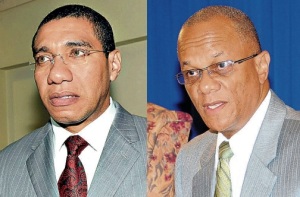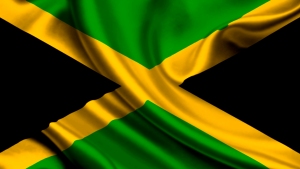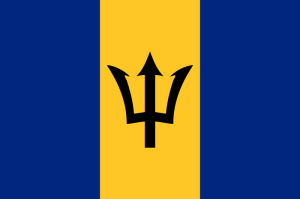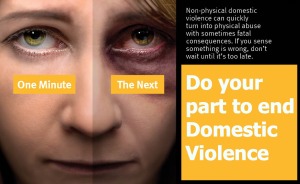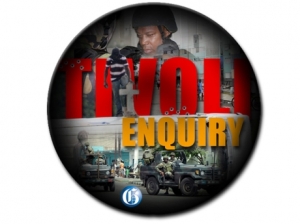
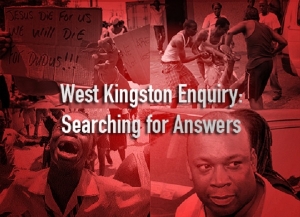
Introduction
I seek your forgiveness for not waiting until the New Year (or at least until after exams) to put pen to paper, but I just could not contain myself in my thoughts. However, given the issue of which I am about to write, I’m sure you will find it easy to forgive me and my youthful legal exuberance; especially around an issue as exhilarating as this. This article will assess the Tivoli Enquiry up to the publication date of this article and how I believe the proceedings may turn out based on how they have started. As I give this introduction, I also hasten to give a disclaimer that what I am about to write are my own views and are not necessarily those of the Mona Law Precedent, the Mona Law Society or the UWI Mona Faculty of Law.
“Wah dis fah?” The Purposes of this Commission of Enquiry
Pursuant to Section 2 of the Commissions of Enquiry Act, His Excellency the Governor-General has convened a Commission of Enquiry to enquire into, inter alia, the actions of the State and its agents in Tivoli Gardens and neighbouring communities in West Kingston during its operation there in May 2010. I refer you specifically to a few of the Terms of Reference here[1]:
- To enquire into:
(b) the conduct of operations by the security forces of Jamaica in Tivoli Gardens and
related areas during the said State of Emergency in the month of May 2010;
(h) whether, and if so under what circumstances, civilians, police officers and soldiers
of the Jamaica Defence Force were shot and killed or injured during May 2010 in
connection with the security forces seeking to effect the arrest of Christopher
“Dudus” Coke on a provisional warrant in extradition proceedings;
(i) the circumstances under which, and by whom, private property was damaged or
destroyed during or around the period of the State of Emergency declared in May
2010;
(j) whether the rights of any person or persons were violated in any of the affected or
related communities by either law enforcement officers or by anyone else and, if
so, whose rights were violated, and the manner and extent of such violations, and
by whom such violations were perpetrated;
(k) the chain of command in relation to the decisions concerning the operations by the
security forces in Tivoli Gardens and related areas during May 2010, and the
respective responsibilities of each person in that chain of command;
(l) whether any dereliction of duty or unlawful conduct is attributable to any person or
persons in that chain of command in connection with the decisions concerning or
the execution of the operations by the security forces in Tivoli Gardens and related
areas during May 2010 and, if so, to which person or persons, and the nature and
extent of such dereliction of duty or unlawful conduct.
The Commissioners
The Commissioners who have been selected for this Enquiry are Sir David Simmons, former Chief Justice and Attorney-General of Barbados, The Hon. Mrs. Justice Hazel Harris, retired Justice of Appeal and Professor Anthony Harriott, one of our outstanding academics from the Faculty of Social Sciences here at UWI Mona. Notwithstanding the drama that enfolded during the initial appointment of Miss Velma Hylton QC, and the political infighting that eventually led her to walk away from the enquiry, I believe that there exists a well-qualified, impartial and competent team of Commissioners.
Certainly, I have been impressed with Sir David’s leadership of the Commission since the proceedings have begun. He has managed, in my estimation, to be level-headed and articulate, yet maintain a stern grip over his control of the proceedings. We saw it firsthand in the first week of the Enquiry where he had no qualms in ejecting the boisterous Lloyd D’Aguilar from the enquiry for his misbehaviour during the first two days of the enquiry and for repeatedly calling him “a political hack”.
I will talk about him and his attitude a little later on in this piece.
The Dealings Thus Far
From the beginning of the Enquiry, we have since heard the testimonies of several witnesses who are residents of West Kingston, many of which have been delivered in what many would call a sort of classical Jamaican style, with all the drama and life that accompanies it. These witnesses, as you can well imagine, are working class and poor people who have lived entire lives of living just to make ends meet, to meet the cap to survive in the modern inner city society. Certainly, the experiences they went through during the incursion have left on them lingering scars that will be worn by them for a lifetime.
We see where the security forces have come well prepared, with a slew of some of Jamaica’s finest and most talked about attorneys, many of whom have become household names in recent years: Peter Champagnie, Deborah Martin, Linton Gordon, Everton Dewar to name a few. We have also seen where the political arms have assembled their legal teams as well, as we have so far seen Senator Alexander Williams step in for the Jamaica Labour Party and where we will see in the new year Ransford Braham, former Attorney-General, represent former Prime Minister Bruce Golding.
We go back to the West Kingston residents. From whence cometh their legal aid? Their legal aid cometh from Ras Miguel Lorne (who is offering his services pro bono) and an advocacy group called The Tivoli Committee, convened and chaired by Mr. Lloyd D’Aguilar.
Now, Mr. D’Aguilar has been quite a character since the idea of the enquiry was conceptualized. He has been very vocal about the plight of the Tivoli residents and the need for them to be compensated for injuries, loss of belongings and loss of life. On the first day of the Enquiry, Sir David was gracious in allowing Mr. D’Aguilar power to act as an attorney in the absence of Mr. Lorne, the rightful attorney. However, he took his allowance a bit too far and allowed himself to get carried away in the heat of the moment, where, even at points in the course of cross-examinations, he was encouraging witnesses not to answer any further questions from attorneys. I believe that this was contemptuous behavior on his part and I am of the view that it did warrant him to be ejected from the enquiry with no chance of readmission. In as much as Mr. D’Aguilar may have the best of intentions to help the residents, his aggression was uncalled for, unprofessional, and definitely contemptuous. Had he been allowed to remain, I posit that he would have caused collateral damage to himself and the Tivoli residents at large. Those lawyers would have already begun to eat them alive.
Another thing that may work to the downfall of the Tivoli residents is this: many of them have been terribly aggressive in the tone of their testimonies. Their anger, to many observers, seems to be a sign of what the Security Forces are trying to argue: that their actions were justified because the community at large refused to co-operate with them in their search for Dudus.
There are some who would go further to say that the citizens were helping criminal elements to shield Dudus from law enforcement in West Kingston and that they should be held responsible for their actions in obstructing the security forces from executing a warrant for the extradition.
The cross-examinations have served to heighten that tension and raise the aggression in order to highlight the inconsistencies. To me, that is what the lawyers are looking for: the aggression that may obfuscate whatever truth there is behind their testimony and whether such aggression has worked in their favour.
Cross-Examination: Too harsh?
Now, it has been argued by many that the cross-examinations being done by witnesses is being done in a manner that is too harsh and demeaning to the witnesses. As a non-lawyer, it is rather easy to slip into that category and agree with the claims that cross-examination by the attorneys is too harsh. Out of this claim are other beliefs that the Enquiry is another grandstanding for lawyers to show off their prowess and style over each other while belittling the “poor, defenceless residents” of West Kingston.
However, I believe that the words of Mr. Linton Gordon, one of the attorneys representing the Jamaica Defence Force, make the better claim, and I agree with them wholeheartedly. As the learned counsel has rightly said, ‘the purpose of cross-examination is to determine the veracity of the witness’ testimony and to detect any and all inconsistencies therein’.
We must remember that these enquiries, though not as formal as Courts and court sittings, are a legal tribunal where lawyers are going to be lawyers. The witnesses, as well as those who disagree with the cross-examinations will just have to learn that these lawyers are doing their jobs: they HAVE to probe the statements, break them apart and analyze them for any inconsistencies that they can use to render the statements false or misleading.
What I advise the witnesses to do in this Enquiry is simple, yet controversial: tell the truth, and make sure that in your conveyance of the truth, be calm and be less aggressive. As far as these proceedings have gone, the aggression of the civilian witnesses has only seemed to help the attorneys for the security forces fulfil their objective as the aggression has allowed many of these testimonies to become fraught with perceived inconsistencies.
What to Come
As the Enquiry progresses, it is my hope that truth and justice will be sought. Beneath the drama, the lawyers and their style, the politics, the pain and the hurt, the blood and gore, there must be the pursuit of justice. The pursuit of justice may not be in favour of the residents of West Kingston, as many watching would like to see it. We just have to accept that. Whichever side you are on, watch the Enquiry for the facts and arrive at a rational and thought out conclusion.
The flashiness is vanity. The truth is the substance.
©Markel Virgo
Second Year Law Student
Faculty of Law, UWI Mona
Contributor, Mona Law Precedent
[1] http://jis.gov.jm/media/TOR-for-West-Kingston-COE-2014.pdf




